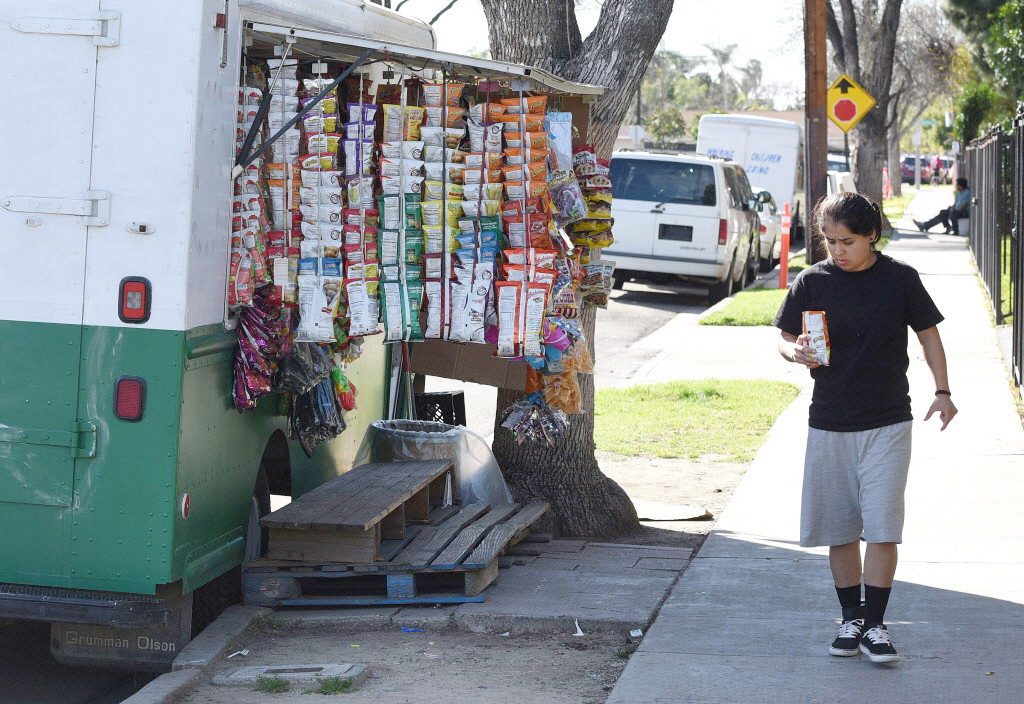A lawsuit seeking to stop Anaheim’s new sidewalk vendor impoundment law is moving forward after an Orange County judge rejected the city’s early legal arguments.
The lawsuit, filed by street vendors who have been cited by code enforcement officers and asked to leave after setting up shop near Disneyland, seeks to get the city to stop enforcing its “no vending zones” around the resort. It also asks for the vendors to be paid for goods confiscated and for past citations to be expunged.
In early 2024, the city updated its sidewalk vendor law to allow officials to impound equipment without having to rely on county health inspectors, a response to concerns over a growing number of vendors staging outside of popular destinations like Disneyland, Angel Stadium and the Honda Center.
“Since the Ordinance took effect, there has been widespread issuing of citations to sidewalk vendors, warnings against vending, and confiscations of property in the Resort Area around Disneyland,” the lawsuit said.
Vendors who don’t have permits, take up too much space on sidewalks or aren’t disposing of grease properly can be cited and have their equipment impounded.
City officials say since SB 946 passed in 2018, which decriminalized sidewalk vending, there has been a significant increase in unpermitted sidewalk vending in Anaheim.
The Anaheim sidewalk vendors filed the lawsuit last fall, arguing that SB 946 mandated that cities couldn’t restrict sidewalk vendors from operating only in designated areas. Before SB 946 passed, the city had a “no vending zone” law that prevented sidewalk vendors from setting up in areas near the Disneyland Resort, according to the lawsuit.
A judge on Friday, April 18, ruled against many of the city’s early legal claims, though didn’t weigh in on the crux of the case that the city’s restrictions violate state law. The city had argued that the statute of limitations had passed on challenging the prohibition on vending in the resort area, which the court disagreed with.
“We stand by our regulations in the best interest of public safety and welcome the chance to share that in court,” city spokesperson Mike Lyster said. “As a city, we must ensure our streets are there for everyone and that any food served meets basic safety standards or the best practices at home. For those looking to do this right, we have a pathway to do so and welcome street vending done the right way.”
An attorney for the plaintiffs did not respond to a request for comment.
The suit’s three plaintiffs have been cited by the city’s code enforcement officers. They sell a variety of goods like light-up toys, Croc charms and bottled water, according to the lawsuit.
Videos included in the lawsuit show confrontations between vendors and a code enforcement officer.
The lawsuit argues that the sidewalk vending allows for economic opportunity for self-employment and gives visitors access to lower-priced food and goods than what they would find in the theme parks.
The city has not slowed down efforts to regulate sidewalk vending. In February, the City Council approved a $250,000 contract to hire a consultant to support sidewalk vendor enforcement.
